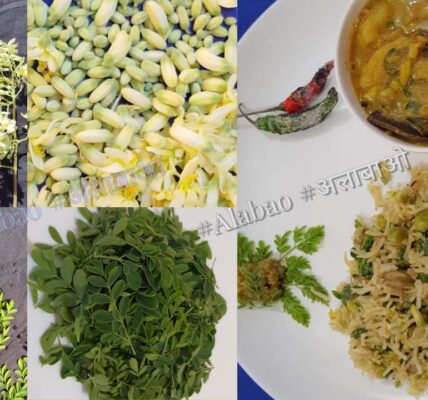Rising from the Ashes: A Herbal Odyssey to Break Chains and Overcome Mercury Poisoning – A Silent Threat
In the shadowy realm of mercury poisoning, where silence often conceals a profound threat, an herbal odyssey emerges as a beacon of hope. Within the pages of this exploration, we delve into the profound healing potential of 27 herbs, each a beacon of hope rising from the ashes, breaking the chains that mercury seeks to impose. Rising from the ashes, these botanical heroes embark on a mission to break the chains of mercury’s silent grip, offering a glimmer of light for those seeking redemption and healing. This is not just a collection of remedies; it’s a testament to the potent synergy between nature and the human spirit in overcoming adversity.
Welcome to the heart of our exploration—where green meets redemption, and the odyssey to wellness begins. Embark on a transformative journey with us as we unveil the path to overcoming the silent threat of mercury through the rejuvenating power of nature’s green redemption. Explore the essence of our exploration, where the shadows of mercury dissolve, giving rise to a profound odyssey towards holistic wellness.

- Zingiber officinale – Ginger: Ginger aids in mercury detoxification by promoting antioxidant enzymes, reducing oxidative stress, and supporting liver function. Its anti-inflammatory properties also contribute to overall health.
- Paullinia cupana – Guarana: Guarana acts as a natural chelator, binding to mercury and facilitating its elimination from the body. Guarana contains antioxidants that help combat oxidative stress caused by mercury exposure. Additionally, its natural stimulant properties can boost energy levels and improve mental alertness.
- Annona coriacea – Wild Custard Apple: The bioactive compounds in wild custard apple possess detoxifying properties, assisting in the elimination of heavy metals like mercury. The Wild Custard Apple also supports liver function. Its antimicrobial and anti-inflammatory effects further contribute to its medicinal value.
- Lygodium venustum – Climbing Fern: Climbing Fern’s antioxidant and anti-inflammatory properties support the body’s defense against mercury poisoning. It also exhibits diuretic effects, aiding in the elimination of toxins through urine.
- Rheum palmatum – Chinese Rhubarb: Chinese Rhubarb promotes detoxification by enhancing bowel movements, facilitating the removal of mercury through the digestive system. It also exhibits anti-inflammatory, anti-bacterial and digestive benefits.
- Triticum aestivum – Wheatgrass: Wheatgrass boosts the body’s detoxification mechanisms, elevating enzyme levels and aiding liver function to facilitate the removal of heavy metals, such as mercury. Its rich nutrient profile also enhances overall health and boosts the immune system.
- Dendropanax morbifera – Morus Tree: Morus Tree extracts exhibit chelating properties, binding with mercury to facilitate its excretion. Additionally, it supports kidney function and has anti-inflammatory and antioxidant effects that contribute to its medicinal value.
- Zanthoxylum piperitum – Japanese pepper: Japanese pepper contains compounds that stimulates circulation and may aid in detoxification processes, promoting the elimination of mercury. Its antimicrobial and anti-inflammatory properties contribute to its traditional medicinal uses.
- Solanum sessiliflorum – Cocona: Cocona’s antioxidant content helps neutralize free radicals induced by mercury exposure, while its anti-inflammatory properties support overall health. It also supports liver function and has diuretic properties.
- Acacia arabica – Babul Tree: The bark of the Babul Tree has been traditionally used to treat heavy metal toxicity, including mercury poisoning. It exhibits antioxidant, antimicrobial and anti-inflammatory effects, contributing to its medicinal properties.
- Bacopa monnieri – Brahmi: Brahmi enhances cognitive function and memory while potentially counteracting the neurological effects of mercury. It also exhibits adaptogenic and anti-anxiety properties, helping the body cope with stress.
- Camellia sinensis – Tea plant: The antioxidants in tea, particularly catechins, may help combat oxidative stress induced by mercury. Green tea exhibits chelating properties, aiding in mercury elimination. Tea’s polyphenols also contribute to its anti-inflammatory and cardiovascular benefits.
- Allium sativum – Garlic: Garlic contains sulfur compounds that aid in mercury detoxification and support the liver’s enzymatic processes. Additionally, garlic is purported to possess prophylactic and curative qualities for various health conditions, including diabetes and hypertension. Its antibacterial and antiviral properties contribute to its broader medicinal uses.
- Tribulus terrestris – Gokshura or Tribulus: Gokshura supports kidney function, potentially aiding in the elimination of mercury through urine. It also enhances reproductive health and has anti-inflammatory and aphrodisiac properties.
- Ginkgo biloba – Ginkgo: Ginkgo’s antioxidant properties may help protect against mercury poisoning induced oxidative stress. Additionally, Ginkgo has neuroprotective effects, guarding against mercury-induced damage to the nervous system. It also enhances blood circulation and has cognitive benefits.
- Eruca sativa – Arugula: Arugula’s detoxifying properties come from its antioxidants and chlorophyll, which may help combat mercury toxicity. It also provides essential vitamins and minerals.
- Ocimum sanctum – Holy Basil or Tulsi: Holy Basil supports the body’s natural detoxification processes, potentially aiding in mercury elimination. Its adaptogenic properties help combat stress and enhance overall well-being.
- Halimeda incrassata – Green Alga: Green Alga’s high chlorophyll content supports detoxification processes and may help bind with mercury for excretion. It also offers nutritional benefits.
- Juglans sinensis – Chinese Walnut: Chinese Walnut exhibits antioxidant properties that contribute to mercury detoxification. Furthermore, it supports liver function and aids in the detoxification of mercury. It also supports heart health and may have anti-inflammatory effects.
- Vitis vinifera – Grapevine: The antioxidants in grapevine may help combat oxidative stress induced by mercury poisoning. Resveratrol, found in grape skins, has anti-inflammatory and cardiovascular benefits.
- Curcuma longa – Turmeric: Turmeric’s curcumin content supports liver function and has anti-inflammatory effects, potentially mitigating the impact of mercury on the body.
- Artemisia absinthium – Wormwood: Wormwood has traditionally been used for its potential detoxifying effects, assisting in the removal of heavy metals like mercury. Wormwood supports liver function and stimulates bile production, aiding in the elimination of mercury. It also has antimicrobial properties.
- Hygrophila auriculata – Marsh Barbel: Marsh Barbel supports kidney function, aiding in the elimination of toxins such as mercury. It also exhibits anti-inflammatory and diuretic effects.
- Eugenia jambolana – Jamun or Java Plum: Jamun’s antioxidant properties contribute to overall detoxification processes, potentially assisting in mercury elimination. It also supports blood sugar control.
- Eugenia uniflora – Surinam Cherry: Surinam Cherry’s antioxidants may help combat oxidative stress induced by mercury poisoning. It also supports liver function and provides essential vitamins and supports immune function.
- Psidium guajava – Guava: Guava’s antioxidants contribute to detoxification processes, potentially aiding in the elimination of mercury. It is also rich in vitamin-C, antioxidants and other nutrients.
- Launaea taraxacifolia – Edible Wild Lettuce: Edible Wild Lettuce may support kidney & liver function and detoxification processes, potentially assisting in the elimination of mercury. It furnishes vital nutrients, promotes digestive well-being, and possesses anti-inflammatory attributes.
In the culmination of our exploration into the shadows of mercury poisoning, we find ourselves surrounded by the healing embrace of nature’s wonders. The resilience of 27 remarkable herbs has unraveled a pathway to wellness, liberating us from the insidious chains imposed by mercury. This journey is more than a collection of remedies; it’s a profound testament to the synergy between nature and the human spirit. Each herb, standing as a beacon of hope, signifies our deep connection to the environment, underscoring the essential role of nature in our collective well-being.
As we navigate the intricacies of our health, let the wisdom of these botanical allies guide us towards a future where mercury’s threat succumbs to the enduring strength of nature’s remedy. This shared narrative of green redemption not only transcends individual struggles but also symbolizes a broader harmony with our surroundings. May this transformative journey serve as a reminder of the inherent power within leaves, roots, and blooms, leading us to a brighter, greener, and more resilient tomorrow.
Source: Bhattacharya S. Medicinal plants and natural products can play a significant role in mitigation of mercury toxicity. Interdiscip Toxicol. 2018 Dec;11(4):247-254. doi: 10.2478/intox-2018-0024. Epub 2019 Oct 18. PMID: 31762676; PMCID: PMC6853017. via – NLM – NCBI – NIH – USA
Image Source: Davide Baraldi – Pexels




